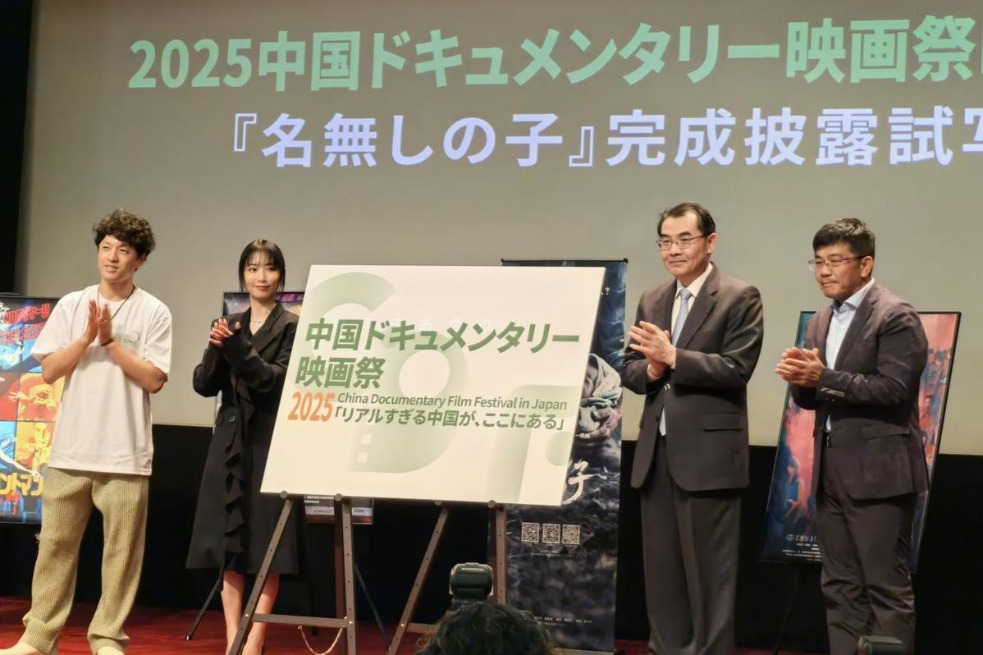Global South countries play bigger role at G20

The recently concluded G20 Summit in Rio de Janeiro, themed "Building a Just World and a Sustainable Planet", was a leading forum for global economic cooperation and governance, serving as a platform to promote effective multilateral cooperation for international economic stability and sustainable growth of all nations.
G20 members represent approximately 85 percent of the world's GDP, more than 75 percent of world trade and approximately two-thirds of the world's population.
Brazil identified three core priorities for its G20 presidency — social inclusion and the fight against hunger and poverty; sustainable development, energy transitions and climate action; and the reform of international institutions.
Brazilian President Luiz Inacio Lula da Silva opened the G20 Summit with the unveiling of a global alliance aimed at tackling poverty and hunger. Lula also chaired a meeting where the Leaders' Declaration was adopted.
The declaration included wide-ranging decisions on key themes such as the international economic and political situation, social inclusiveness and the fight against hunger and poverty, reform of global governance institutions and climate change.
Under Brazil's leadership, the G20 addressed some of the world's most pressing issues with tangible initiatives that reflect a vision for a more equitable, sustainable future.
The rotating G20 chair held by Indonesia, India, Brazil and next, South Africa, represents a turning point for the Global South and an injection of new momentum in G20 activities.
The fact that the outgoing, incoming and upcoming presidencies, the so-called G20 Troika, are held by emerging economies presents a unique opportunity to place the Global South's priority theme at the heart of the G20 agenda.
At a time when geopolitical tensions among major powers are high and much of the rest of the world is despondent about the state of multilateral institutions, the G20 Troika, made up of emerging economies, will not only make the G20 a much more dynamic platform, but also revive faith in the ability of multilateral processes and structures to move the global governance agenda beyond polarized political discourse. By doing so, it will put the Global South squarely at the center of the global governance agenda.
The G20-driven benefits will partially depend on the leverage exerted by emerging economies.
South Africa assumed the G20 presidency on Dec 1. Its presidency presents a unique opportunity to place Africa's developmental priorities on the agenda, as well as advocate for economies of the Global South. It will enable South Africa to build on the efforts and successes of the Indonesian, Indian and Brazilian G20 presidencies.
The G20 presidency will be pivotal for South Africa to champion sustainable development goals, drive global cooperation and prioritize inclusive policies to tackle economic disparities and foster social well-being.
Its G20 participation, therefore, seeks to provide strategic direction for the establishment of a more equitable, representative and fit-for-purpose international order, in support of the main multilateral processes under the United Nations Charter.
The African Union's inclusion in the G20 last year is, in fact, historic. It solidifies Africa's role in addressing critical global issues such as economic development, climate change and energy transitions, transforming Africa's food systems and sustainability.
G20 membership will contribute to Africa's growing influence and importance on the global stage. In fact, when much of the existing international multilateral architecture was built, most of Africa was still colonized and did not have an opportunity to have its voice heard. This is another step toward correcting that imbalance.
One major example of the serious challenges that Africa faces is that the continent has to meet climate commitments amid significant developmental challenges like poverty, inequality and unemployment.
Africa suffers disproportionately from the climate crisis, despite being responsible for only a fraction of emissions. The climate emergency is harming food security, ecosystems and economies of nations on the continent.
Chinese President Xi Jinping stressed in Rio de Janeiro that China will always be a member of the Global South, a reliable long-term partner of fellow developing countries, and a doer and go-getter working for the cause of global development.
Xi subsequently announced a raft of highly constructive measures designed to support the Global South. It included, among others, pursuing high-quality Belt and Road cooperation, implementing the Global Development Initiative, proposing the Initiative on International Cooperation in Open Science along with Brazil, South Africa and the African Union to help the Global South gain better access to global advances in science, technology and innovation, supporting the G20 Anti-Corruption Action Plan and China's intention to pursue high-standard opening-up, and unilaterally opening its doors wider to the least developed countries.
Furthermore, the African Union and South Africa have accepted and stand ready to work with China and other developing countries in the G20 context to jointly implement China's Global Development Initiative, Global Security Initiative and Global Civilization Initiative.
These initiatives are aimed at strengthening global economic development and the practice of true multilateralism, and will undoubtedly increase the representation and voice of the Global South in global governance and safeguard the shared interests of developing countries toward the building of a community with a shared future for mankind.
As President Xi stated, citing a Chinese saying, "a journey of a thousand miles begins with the first step", the country is ready to take steps together with all parties to build a just world of common development, leave poverty in the past, and turn our vision into reality.
The author is a senior research fellow at the Institute of African Studies at Zhejiang Normal University and a former senior diplomat in the South African Department of International Relations and Cooperation.?The views do not necessarily reflect those of China Daily.
































